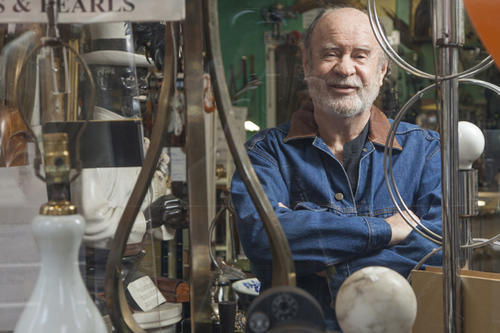
Rural Minnesota depends on its Mom ‘n Pop businesses, its mid- and large-sized employers and everything in between. When local business owners seek to retire—as they are in increasing numbers—communities can do more to help them with a successful transition, according to a new study by the University of Minnesota Extension Center for Community Vitality.
“Two-thirds of American small businesses are owned by baby boomers. That means change is coming to Main Streets throughout Minnesota,” said Bruce Schwartau, leader of Extension’s community economics program.
To help communities better understand and support business transitions, Extension studied business succession in Greater Minnesota cities with fewer than 7,500 residents. The April survey gathered insights into successful business transfers from 118 current business owners who took the reins between 2008 and 2012. In-depth interviews then were conducted with seven business owners to learn more about their experiences. The study also examined community efforts related to business succession in two Minnesota towns—Barnesville in Clay County and Spring Valley in Fillmore County—as well as Cando and Bowdon, N.D.
New ownership can help local economies, the study found. Eighty-seven percent of the respondents maintained or increased the number of employees after purchasing the business. Sixty-eight percent reported increasing sales volume and customer base. Half of the new business owners were new to town or had returned home; the other half had lived in town their whole life.
Some seeking to take the reins of businesses hit roadblocks, mainly in securing financing and obtaining accurate records from previous owners. It’s essential, Schwartau said, for local bankers and accountants to be thoroughly engaged in the community. Closer connections to rural Minnesota among business brokers and trade associations would help, he added.
“Many business owners have no succession plan in place -- no one identified to take over and no plan for making their business attractive to buyers,” Schwartau said. “Community leaders can also help by encouraging conversations about business succession and connecting business owners to resources such as business valuation services and brokerage services.”
As part of the study, Karen Lauer, executive director of the Barnesville Economic Development Authority, worked with Extension’s Business Retention and Expansion strategies program. The effort led the community to work better as a team with local businesses to help businesses plan for succession.
“What we didn’t really understand is how business owners view their decisions as personal – and yet those decisions can have a major impact on a town. So that underscores the need to cooperate and collaborate through a whole new different conversation,” she said.
Added Schwartau: “When outgoing and incoming owners and their communities work together well, the transition, the ‘reset button,’ can benefit everyone.”
The full study is here. It excluded grocery stores in Greater Minnesota, which were recently studied by Extension’s Regional Sustainable Development Partnership.
Contacts: Becky Beyers, University of Minnesota Extension, 612-625-1759, [email protected]; Bruce Schwartau, Extension community economics program leader, 507-536-6308 (office), 507-251-8553 (mobile), [email protected]
- Categories:
- Science and Technology





